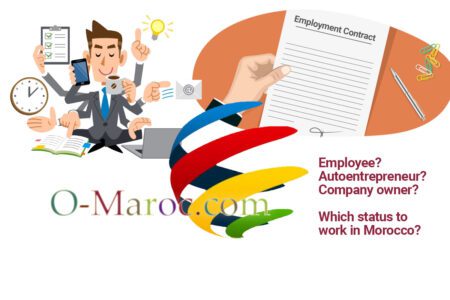After off-shoring and the agri-food sector, here’s the third growth sector in Morocco: consulting.
I’ve already talked to you about it several times, explaining how to find a job as a consultant in Morocco, the possibilities for a young Moroccan graduate from a foreign school, and even posting a vacancy for a PCA/PRA project manager. Today, however, I’d like to talk to you about being a consultant as an entrepreneur, either on a freelance basis or with a real structure.
Strong demand for skills
Morocco is above all looking for experienced consultants. Many clients refuse beginners (or ask that they not be invoiced, which amounts to the same thing). On the other hand, at manager level and above, demand is very high, and in all areas.
Acting as Project Manager
Project management in Morocco requires the same skills as anywhere else, but with additional challenges.
In many large organisations, the management style is still fairly “traditional”, with little room for manoeuvre and a strong hierarchical structure. Agile-type methods are a nice word that you can use, without actually putting them into practice. If you come from a less hierarchical environment, you will have to adapt. Validations, in particular, are often longer with more iterations.
Depending on the client, the profile and the size of the assignment, a project manager will be invoiced between 6,000 and 12,000 dirhams/day excluding tax.
Technical expert consultant
Whether it’s IT systems, logistics experience, skills in agri-food, supply chain improvement, production rationalisation, value chain improvement, security or BI, skills are in high demand.
Since Covid, the issues of digital transformation and business continuity have become increasingly important: how do you organise home working for a service or production company? What do you do if a factory or supplier is closed because of a cluster? What if a customer cancels an order? What do you do if you fall victim to non-payment?
Change Management
Change Management functions are less in demand: on the one hand, the need is less felt. On the other hand, it is often handled very largely in-house, by the company’s business experts, under the responsibility of the project manager, with consultants possibly drafting manuals and new procedures. But in this particular area, there is already a great deal of local expertise (local meaning “in Morocco”, whether the person is Moroccan or foreign).
The most important sectors
The sectors with the highest demand in terms of numbers are of course those where the biggest companies are concentrated: banking, finance and insurance.
In the industrial sector, OCP, which has its own in-house consulting subsidiary, has a high demand for consultants.
Other large companies have a lower demand for consultants, or call directly on European consultancies, which then subcontract to Morocco.
Generally speaking, the most important sectors are those that are strategic for Morocco:
- agri-food (processing, improving the value chain)
- banking and insurance
- offshore industry
- export products in general, particularly to Africa
- renewable energies, solar and wind power, and desalination
Small and medium-sized businesses will be able to access advice via consortia that will cover the cost of studies.
Marketing and strategy
These sectors are less important. The ‘big’ studies are the preserve of a few international firms at government level. At SME level, it often boils down to a few interviews and ‘polls’ on social networks, via GoogleSheets. The opacity of the data doesn’t make for good work either.
Freelance or company?
By “freelance”, I mean a consultant who works alone, as an individual, without a collaborator, whether as an auto-entrepreneur (with a limit on turnover of 200,000 dirhams per year), as an individual or as a limited liability company.
Setting up a consultancy without a real client portfolio is extremely difficult, especially in a new country. Even if your contacts enable you to secure a few contracts, it will be easier for you, initially, to network with other self-employed people than to start your own business.
If you don’t have a large portfolio from the outset, or if you don’t set yourself up as a subsidiary of an international group, you will also find it difficult to recruit high-quality teams: good consultants are in great demand, and becoming an employee should offer them definite advantages over freelance status: financial security, the chance to develop and work on assignments to which they would not otherwise have access.
 A typo or syntax error? You can select the text and hit Ctrl+Enter to send us a message. Thank you! If this post interested you, maybe you can also leave a comment. We'd love to exchange with you !
A typo or syntax error? You can select the text and hit Ctrl+Enter to send us a message. Thank you! If this post interested you, maybe you can also leave a comment. We'd love to exchange with you !




